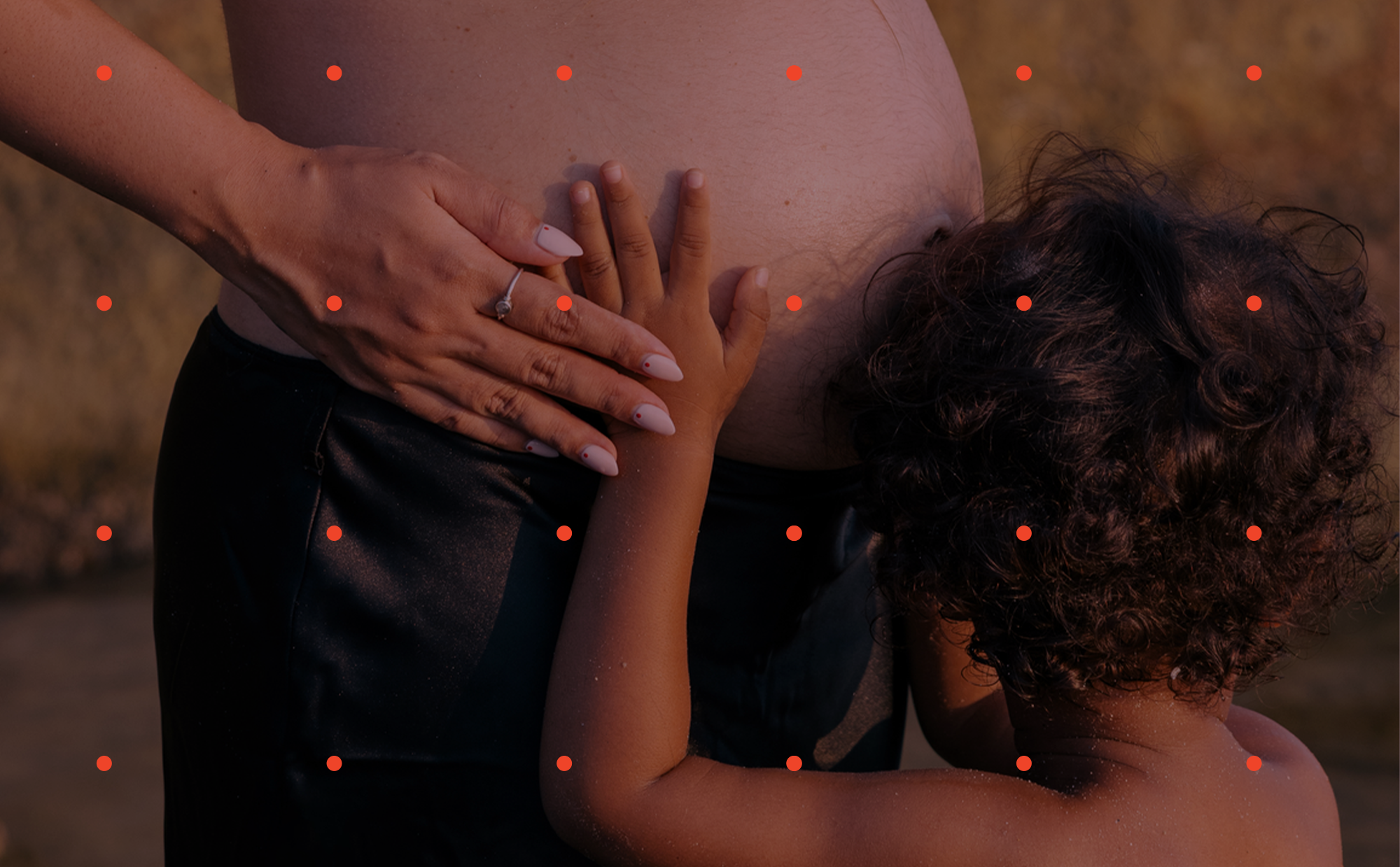Optimising prenatal nutrition for positive pregnancy, birth, and postpartum outcomes
Pregnancy is a biological marathon, not a sprint. Every organ in the body adapts to meet the demands of baby’s development—hormones shift, blood volume expands by 50%, and the nutrient needs of the mother increase significantly.¹
However, pregnancy is not just about growing a baby—it’s also about shaping the long-term health trajectory of both mother and child. Emerging research underscores the profound impact of maternal nutrition, not just on foetal development, but also on the child's risk of chronic diseases, neurodevelopmental outcomes, and even their metabolic flexibility.²⁻⁴ The key is not to ‘eat for two’ but to ‘eat smart for two.’
The impact of maternal nutrition extends far beyond pregnancy itself. In the immediate term, deficiencies in key nutrients can drive adverse pregnancy outcomes like low birth weight, impaired foetal growth, and foetal malformations like neural tube defects and congenital heart defects (Brown et al., 2020; Yang et al., 2019). But the consequences don’t stop there. Poor maternal nutrition can have a profound influence on long-term offspring health, increasing susceptibility to chronic conditions later in life like obesity, type 2 diabetes, heart disease, and a host of noncommunicable diseases.²⁻⁴
Let’s break down an optimal approach to prenatal nutrition—focusing on maternal metabolic health, micronutrient density, and mitigating risk factors for complications such as gestational diabetes and preeclampsia.
Preconception: laying the groundwork
Women who enter pregnancy with micronutrient deficiencies, metabolic dysfunction, or suboptimal energy balance—whether from undernutrition or overnutrition—are at a higher risk of complications. Women living with overweight or obesity have a higher risk of gestational diabetes mellitus (GDM), preeclampsia, and large-for-gestational-age baby⁵⁻¹⁰, while underweight women are at increased risk for low birth weight and preterm birth.⁸
However, weight alone is not the best predictor of risk. Emerging research suggests that a more personalized approach—one that considers insulin sensitivity, body composition (lean mass vs. fat mass), inflammation levels, and diet quality—offers a better framework for intervention.¹¹
All women of childbearing age should receive preconception counselling and guidelines on nutrition, physical activity, and optimal gestational weight gain, with particular attention to those with a pre-pregnancy BMI that indicates underweight, overweight, or obese status:
-
For women with a history of restrictive eating or undernutrition: Adequate intake of protein, omega-3 fats, and micronutrients like iron, zinc, and choline is crucial for baby neurodevelopment and maternal energy balance.
-
For women living with overweight or obesity: Studies suggest that modest, intentional changes in dietary patterns—even in the absence of weight loss—can improve metabolic flexibility, reduce inflammation, and lower the risk of pregnancy complications.
-
Medical management of any chronic condition should be optimized before pregnancy: including diabetes mellitus, prediabetes mellitus, insulin resistance, history of gestational diabetes mellitus, chronic hypertension, and any chronic medical disease (cardiopulmonary, obstructive sleep apnoea, rheumatologic, NAFLD, gastrointestinal).
The goal should be to enter pregnancy with metabolic resilience—maintaining muscle mass, reducing visceral fat, and supporting insulin sensitivity.
Micronutrient status matters before conception and during pregnancy:
Folate:
Essential for neural tube closure in the first 4 weeks of pregnancy.
⦁ Supplement with 400–600 mcg daily at least one month before conception.¹²
Choline:
Only 25% of pregnant Australian women meet the recommended intake for choline, a nutrient essential for foetal brain development.¹³
⦁ Target 450–550 mg/day via eggs, liver, and choline supplementation if needed.
Iron:
Up to 25% of pregnant Australian women experience iron deficiency anaemia, which is associated with poor birth outcomes, including increased maternal illness, low birth weight, prematurity, and intrauterine growth restriction.¹⁴⁻¹⁶
⦁ Aim for ferritin levels >50 ng/mL before conception.¹⁷
Vitamin D:
Approximately one in five pregnant Australian women are vitamin D deficient.¹⁸ ¹⁹ Vitamin D deficiency has been associated with a number of negative pregnancy outcomes, including preeclampsia, gestational diabetes mellitus (GDM), emergency caesarean section delivery, low birth weight, and small-for-gestational-age.²⁰ There is also an association between vitamin D deficiency and postpartum depression, with a 2.67 times risk with vitamin D levels <50 nmol/L.²
⦁ Aim for Vitamin D levels of 40–60 ng/mL before conception.²²
Iodine
One in every 5 (18%) Australian women of childbearing age have an iodine deficiency.²³ ²⁴ Iodine deficiency remains a concern, as adequate iodine is essential for foetal brain development and severe iodine deficiency in pregnancy impairs brain development in the child.²⁵
⦁ The World Health Organization (WHO) recommends women who are pregnant or breastfeeding take a daily oral iodine supplement so that the total daily intake is 250 µg.²⁶
⦁ The WHO also recommends supplementing with at least 250 µg/day for pregnant women who don’t consume iodized salt.²⁶
Pregnancy: macronutrients and micronutrients
Key macronutrients during pregnancy
Protein:
⦁ Aim to eat 1.2–1.5 g/kg body weight of protein, particularly in the second and third trimesters, to support foetal and placental growth.²⁷
⦁ Sources: Grass-fed beef, pastured eggs, wild-caught fish, organic dairy, and legumes.
Carbohydrates: quality over quantity
⦁ Excessive refined carbohydrates drive high blood sugars and can lead to metabolic disorders (like obesity and type 2 diabetes) in the mother and baby.²⁸
⦁ Focus on fibre-rich, low-glycaemic-load sources like sweet potatoes, quinoa, legumes, and berries.²⁹
⦁ Avoid processed foods, refined sugars, and high-glycaemic starches that can raise blood sugars and contribute to insulin resistance.
Fats: prioritize Omega-3s
⦁ Omega-3 fatty acids, particularly DHA, are crucial for foetal brain development and reducing preterm birth risk.³⁰
⦁ Target 300–1000 mg DHA + EPA/day via wild-caught salmon, sardines, or high-quality omega-3 supplements.³¹
Addressing common pregnancy challenges through nutrition
Gestational Diabetes:
⦁ Avoid blood sugar spikes by emphasizing protein, fibre, and healthy fats at every meal.
⦁ Time carbohydrate intake post-protein/fat consumption.
⦁Consider continuous glucose monitoring (CGM) to personalize dietary responses.
Morning sickness & nausea:
⦁ Small, protein-rich meals stabilize blood sugar.
⦁ Ginger, B6 supplementation (25–50 mg/day), and electrolytes may help mitigate symptoms.³²
⦁ Avoid fasting periods longer than 12 hours to prevent hypoglycaemia-induced nausea.
Postpartum recovery & breastfeeding nutrition
During the weeks and months after birth, your body is working hard—repairing tissues, regulating hormones, and, if breastfeeding, producing milk. Regardless of whether breastfeeding, formula-feeding, or using a combination of both, a postpartum diet should be rich in whole foods, including:
⦁ Protein: Eggs, fish, poultry, lean meats, legumes, tofu
⦁ Healthy fats: Avocados, nuts, seeds, extra virgin olive oil
⦁ Complex carbohydrates: Whole grains, sweet potatoes, quinoa
⦁ Fibre: Leafy greens, citrus fruits, berries, fermented foods
Breastfeeding-specific nutritional needs
If you’re breastfeeding, your body has additional energy demands—producing breast milk requires about 400–500 extra calories per day in the first six months.³² Appetite naturally increases to match this, but prioritizing nutrient-dense rather than empty-calorie foods is crucial.
Key nutrients for lactation:
⦁ Calcium & Vitamin D – Support bone health (found in dairy, fortified plant milks, leafy greens)
⦁ Iodine – Essential for thyroid function and baby’s brain development (found in iodized salt, seafood, dairy)
⦁ Iron – If anaemic postpartum, supplementation may be necessary
⦁ Vitamin B12 – Crucial for energy and neurological health, especially if following a vegan diet
⦁ Omega-3 Fatty Acids – DHA supports baby's brain and nervous system development (found in fish)
Hydration is key! Breastfeeding mothers produce around 750 mL of milk daily, so aim for 2.5–3 litres of fluids per day. Listen to your thirst cues, and keep water, herbal teas, or broths on hand.³²
Final takeaways:
⦁ Focus on metabolic health preconception—optimal weight, blood sugar control, and micronutrient status matter
⦁ Prioritize whole, nutrient-dense foods
⦁ Avoid ultra-processed foods
⦁ Fine-tune macronutrient intake—quality over quantity in protein, carbs, and fats
⦁ Support postpartum recovery with targeted nutrition
By making deliberate, evidence-based nutritional choices, we can optimize pregnancy outcomes, enhance baby’s development, and improve long-term health for both mother and child. The data is clear: pregnancy is a pivotal time to invest in foundational health.

Written By
The Land Lab Science Advisory Council

Review By
Hannah LaBrooy
MD, MPH
Dr. Hannah LaBrooy is a medical doctor and public health researcher with a multidisciplinary background spanning clinical medicine, public health, and international aid and development. She holds a Master of Public Health and previously worked as a Research Project Coordinator at the Kirby Institute (UNSW), contributing to publications in leading journals including The Lancet.
Her commitment to public health and equitable innovation was shaped by early experiences working in regional and remote drug and alcohol settings and a formative internship at The Grameen Bank in Bangladesh. Her professional and academic experience has focused on addressing health inequities, particularly in the area of access to care among marginalised populations.









